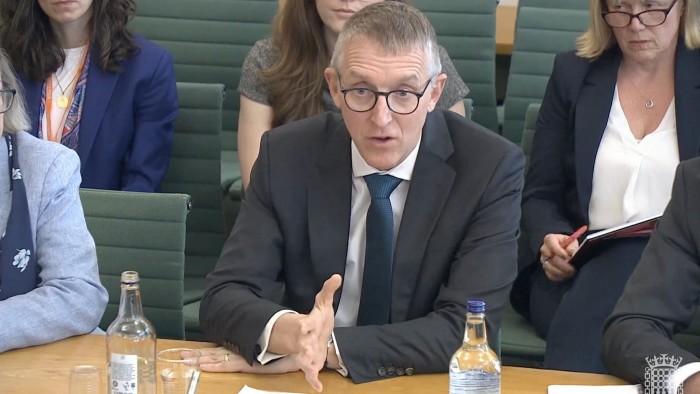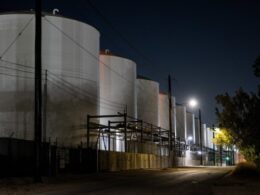Stay informed with free updates
Simply sign up to the Financial & markets regulation myFT Digest — delivered directly to your inbox.
The Bank of England’s top financial supervisor has said it is monitoring the impact on lenders of Donald Trump’s sweeping tariffs, with an expected economic slowdown likely to lead to higher provisions for loan defaults.
Sam Woods, chief executive of the BoE’s Prudential Regulation Authority, said the regulator had stepped up monitoring of banks during the market volatility triggered by the US president’s “liberation day” tariffs, without yet moving to the “highest level” of requiring daily liquidity reports from lenders.
“We are watching it [the effect of tariffs] very closely,” Woods told the House of Commons Treasury select committee on Tuesday. “The thing we are watching for next is also what will be the macro impact of all this.”
“I think it will be interesting to see whether our banks in the next period choose to provide more for a different economic environment because they do forward-looking provisions now,” said Woods, who is also a BoE deputy governor. “So that is where our focus is at the moment.”
HSBC on Tuesday took a $150mn hit to reflect increased economic uncertainty, as part of the overall $876mn charge for bad loans that the bank recorded in the first quarter of this year, slightly higher than analysts’ forecasts.
The IMF last week cut its UK growth forecasts from 1.6 per cent to 1.1 per cent for this year, as it warned of widespread economic disruption from a US-driven surge in trade barriers around the world.
Shares in some British banks dropped as much as 20 per cent in response to Trump’s tariff announcements, and Woods said it was “unusual for us to have that much value wiped off the value of our banks”.
But he added that those share prices had mostly recovered since Trump delayed the tariffs, and that the PRA had seen few signs of the sell-off causing investors or consumers to lose confidence in lenders.
“What we really watch for is the risk of contagion into funding,” he said. “That is what we really care about and we didn’t really see any sign of that.”
Trump’s tariff announcements had “created quite a dent in the way the US is seen by both regulators and investors”, said Woods, who was in Washington last week for the IMF and World Bank Spring meetings.
He highlighted a “quite concerning” sell-off in both the US dollar and in US government bonds that followed Trump’s tariff announcement, along with a drop in share prices.
“Normally we see the opposite in these risk-off types of conditions,” Woods said. “Normally we see a flight into these assets.”
He added: “We are asking ourselves the question: what would happen if there was a more fundamental drop in appetite for either dollar-denominated assets, or US assets, or Treasuries, or some version of that?”
The PRA chief said he had also been concerned that the US could ditch the bank capital rules agreed with other regulators at the Basel Committee on Banking Supervision after a speech by US Treasury secretary Scott Bessent on April 9.
Bessent said: “We should not outsource decision making for the United States to international bodies.” He added that where the Basel standards “can provide inspiration” the US could “borrow selectively from them”.
However, Woods said he had since been “very roundly reassured” by figures in both the US private and public sectors that “that was not the right way to read that speech”.
The UK has postponed implementation of the Basel rules while it waits for clarity on the US position under Trump.
The EU has delayed part of the Basel rules for the financial market trading activities of banks and is expected to postpone these again this year.
Woods said it was “a benefit of Brexit” that the UK could “move much faster than the EU”.
But he added that the UK was in “regular dialogue” with the EU on implementing the reforms and “one byproduct” of Trump’s tariffs was that the warmth of these relations “is increasing quite considerably”.
Source link









